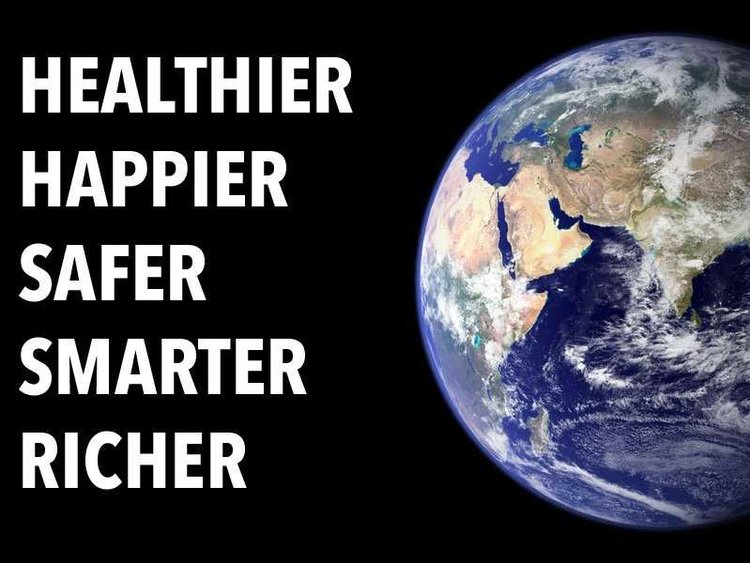Kerby Anderson
Steven Pinker (Harvard University) says that the left and the right at least agree on one major point: “The world is getting worse.” His new book goes into some detail to show that simply is not true.
In a recent op-ed, he reminds us that, “Such gloominess is decidedly un-American.” Unfortunately, we fool ourselves by comparing rose-tinted images of the past with the scary headlines of today. Here are just a few statistics worth considering.
The homicide rate three decades ago was is almost twice what it is today. Americans below the poverty rate today is less than a third of what it was back then. The number of wars worldwide today is half of what it was in 1988.
Life expectancy has risen dramatically in the last century. “Through most of human history, continuing into the 19th century, a newborn was expected to live around 30 years.” Life expectancy around the world has now risen to 71, and in the developed world is at 81.
As I have mentioned in previous commentaries, extreme poverty across the globe has dropped at a significant rate. In fact, Pinker predicts that the rate of extreme poverty may approach zero in our lifetimes. I would attribute that success to the free market that has given us a world that is “a hundred times wealthier than it was two centuries ago.”
My major concern with his book and op-ed is his belief that all of this human flourishing is due to the Enlightenment. He wrote his book to make the case for science, humanism, and progress.
As I have discussed in previous commentaries, the rise of modern science came in large part from scientific pioneers who were at least theists, and in most cases Christians. Likewise, arguments for free markets and private property also had a Christian component. Many of the founders of this country who gave us a republic articulated Christian principles. Some of that is lost in his attempt to credit all this good news to secular humanism.
 Listen Online
Listen Online Watch Online
Watch Online Find a Station in Your Area
Find a Station in Your Area










 Listen Now
Listen Now Watch Online
Watch Online
